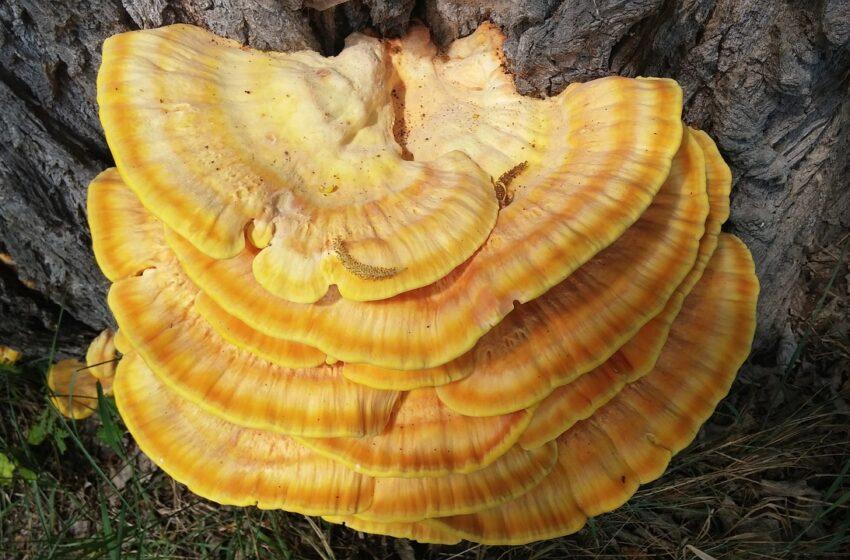You Will Never Believe These Bizarre Truths Behind Reishi

Your immune system and general health can benefit from reishi mushrooms. However, they may also have negative effects on the digestive system and may be dangerous for certain individuals, especially those who are on specific drugs.
The reishi mushroom, often referred to as Ganoderma lucidum and lingzhi, is a kind of fungus that develops in a number of hot and muggy regions of Asia.
It may provide a number of health advantages, including strengthening the immune system. However, there are now concerns about its safety.
Here are six possible advantages of reishi mushrooms.
1. Strengthen your immune system
Your immune system may be strengthene, which is one of the reishi mushroom’s most significant impacts.
Test-tube studies have shown that reishi may impact the genes in white blood cells, which are important components of your immune system, even if certain aspects are still unclear.
Furthermore, these earlier investigations discovered that certain reishi varieties may change white blood cell inflammatory pathways.
Reishi may boost the production of more white blood cells in people with colorectal cancer, according to a 2006 research.
In a different, earlier research, athletes subjected to stressful circumstances had their lymphocytes—which aid in the battle against infections and cancer—perform better.
More investigation is necessary, however, since some other studies have revealed no impact of reishi extract on inflammation or immunological function.
2. Cancer-fighting capabilities
Reishi has become popular because of its alleged anticancer effects.
In fact, several research conducted in test tubes have shown that it may cause cancer cells to die.
Due to its impact on inflammation and certain signaling pathways associated in the development of cancer, some study has also looked into whether reishi could be advantageous for prostate and colorectal cancer.
In addition, one study suggested that the mushroom may help persons with cancer when taken in conjunction with conventional therapy by boosting white blood cell activity and enhancing quality of life.
Still, additional study is require to determine how reishi affects human cancer development.
3. Could lessen depression and exhaustion
Although the immune system benefits of reishi are often highlight, it may help lessen sadness and weariness.
In 132 individuals with neurasthenia, a disorder characterized by aches, pains, dizziness, headaches, and irritability, its effects were studied in an earlier research.
After taking the supplements for 8 weeks, the researchers saw a decrease in weariness and an improvement in wellbeing.
Reishi powder was shown to enhance quality of life after 4 weeks and decrease tiredness, anxiety, and sadness in another 2012 trial on women with breast cancer.
The Reishi’s mushrooms may show promise for persons who suffer from certain illnesses, but it’s not clear whether healthy individuals would also benefit from them.
Reishi mushroom has been investigate for its ability to enhance several elements of health in addition to its effects on the immune system and quality of life.
4. Blood sugar and heart health
Reishi mushrooms may help reduce blood sugar, boost HDL (good) cholesterol, and lower triglycerides, according to a number of studies that examined persons with both healthy and harmful levels of blood sugar and lipids.
A modest tendency toward reduce lipid levels was seen in at least one older research of healthy people, although this was not statistically significant.
Other studies have also revealed no impact of reishi supplementation on triglyceride or cholesterol levels.
Consequently, additional investigation is require.
Older animal and human research, however, also raise the possibility that certain reishi mushroom chemicals may help lower blood sugar levels.
Reishi supplementation had no impact on hemoglobin A1c, a measure of long-term blood sugar management, or fasting blood sugar, according to a 2016 research.
More study is thus required in this area as well.
5. The level of antioxidants
Molecules called antioxidants may help shield cells from harm.
Reishi mushrooms are said to be good in boosting antioxidant status.
However, after taking reishi for 4–12 weeks, numerous earlier studies reported no difference in the levels of significant antioxidant enzymes in the blood.
Depending on the type being utilize, different dosages are advise.
The dosage of reishi mushrooms might change based on the kind utilized, unlike certain meals or supplements.
A dried extract of the fungus is often use. The dosage in these situations is around ten times lower than when the mushroom is eaten.
For instance, 50 grams (g) of reishi mushrooms by themselves are equivalent to around 5 g of mushroom extract. The dosage of the mushroom extract varies, but it normally ranges from 1.5 to 9 g daily.
Furthermore, some supplements just employ certain bits of the extract. The dosages that are advise in these situations could be much lower than the ones shown above.
Potential Negative Consequences And Risks
Reishi mushrooms are widely use, however some people have express concern about its safety.
According to some studies, those who took reishi mushrooms for 4 months were almost twice as likely to have mild adverse effects as people who took a placebo.
According to other studies, ingesting reishi mushroom extract for 4 weeks didn’t have any negative effects on healthy people’ livers or kidneys.
On the other hand, several case studies have noted serious liver issues.
It might be difficult to identify whether the mushroom was the cause of the liver damage since other variables were present.
However, certain individuals should definitely stay away from reishi, especially those who are on other drugs like anticoagulants or immunosuppressants.
Conclusion
Popular in Eastern medicine, the fungus reishi mushroom may help strengthen the immune system.
Additionally, this fungus may be able to enhance the quality of life for certain cancer patients by reducing the size and quantity of tumors in specific forms of cancer.
The majority of studies on humans have shown that it does not increase antioxidants, blood sugar, or cholesterol, but that it may sometimes be successful in lowering tiredness or depression.
